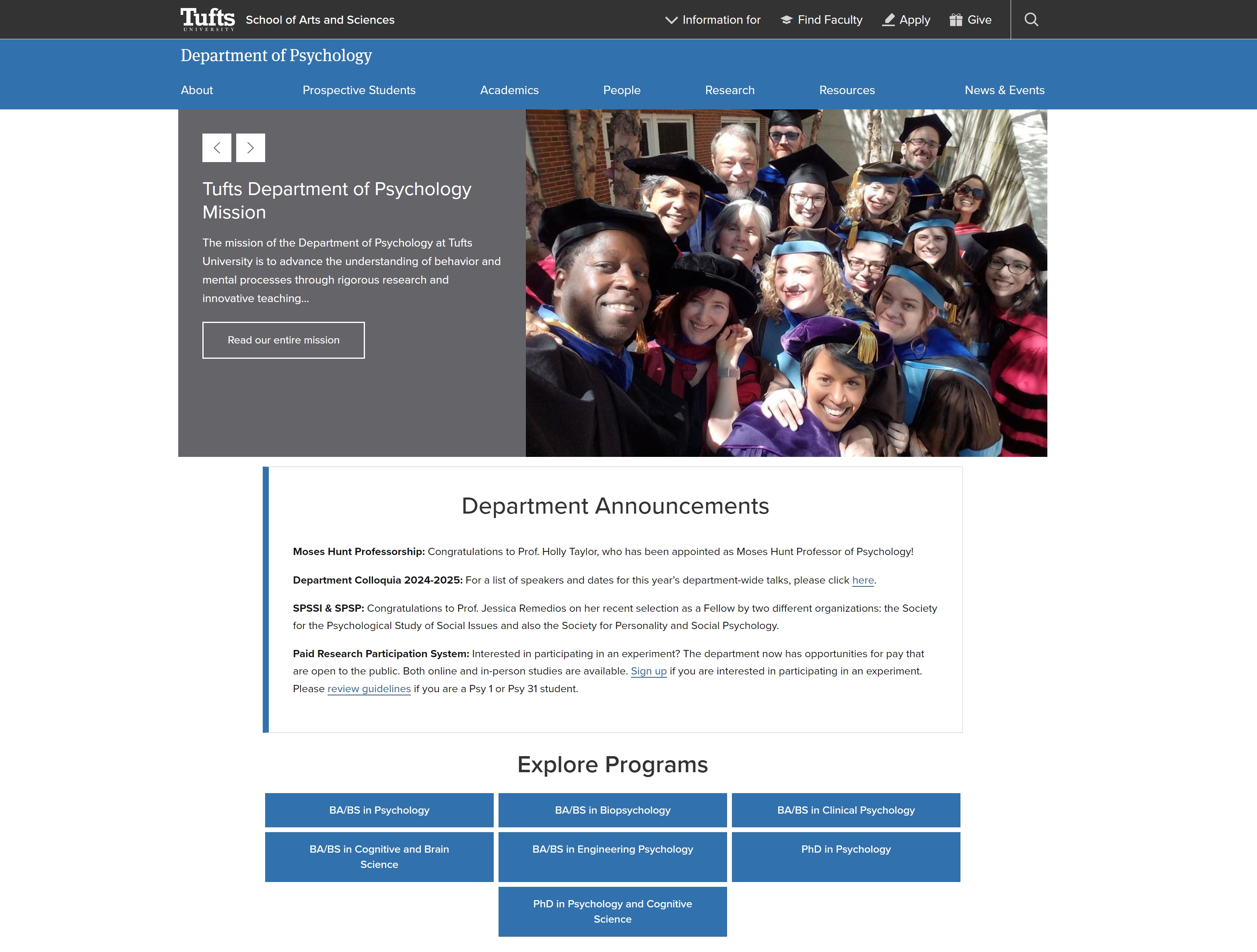
Department of Psychology - Queen's University
Queen's University's Department of Psychology features 35 research labs focusing on Cognitive Neuroscience and areas such as Developmental, Social, and Clinical Psychology. Students collaborate with faculty and graduate students on research topics including sexuality, bullying, mood disorders, and infant cognition.
MerUniversitet

University of Rochester Department of Psychology - Graduate Studies, Research, and Academic Excellence
Our department has three graduate programs that lead to a PhD—clinical, social-personality, and developmental psychology. We also have an undergraduate psychology major and several psychology minors.

Brown University Cognitive, Linguistic & Psychological Sciences
The Department of Cognitive, Linguistic, and Psychological Sciences (CLPS) was created in 2010 by joining the departments of Psychology (established in 1892) and Cognitive & Linguistic Sciences (formed in 1986). State-of-the-art research in mind, brain, behavior and language requires spanning multiple levels of analysis and using a range of approaches and methodologies, and the integration of these two closely related departments has created an environment where this intellectual synthesis can flourish. The creation of CLPS reflects Brown's philosophy to build bridges between disciplines and to encourage interdisciplinary studies.

Tufts University Department of Psychology
The Department of Psychology at Tufts University conducts cutting-edge research aimed at understanding the causes and consequences of mental processes and behavior. Our work addresses social, cognitive, and neural levels of analysis. We are innovative and interdisciplinary in our approach and emphasize understanding phenomena that have a direct impact on society. Scientists at all levels - faculty, postdoctoral trainees, and graduate and undergraduate students - engage in collaborative scholarship and critical thinking in the classroom and in the laboratory. This synthesis, between research and teaching, positions us to ask and answer fundamental questions while also enriching our students' understanding of psychology.
